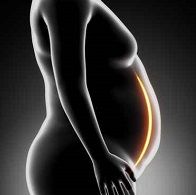High-Protein Diet Reduces Weight, Fat
Obesity associated with metabolic syndrome can be treated when patients adhere to a high-protein diet, a team of researchers from University of California, Los Angeles found.

High-protein diets have been shown to help patients lose weight. Reporting at the 2015 Digestive Disease Week conference in Washington, DC, Deepinder Goyal, MD, and colleagues at the University of California, Los Angeles said such a regimen holds promise for patients whose obesity is related to metabolic syndrome.
The team assigned patiens who had a body mass index of 27 to 40 to one of three types of high protein diet: very high, high, or standard.
They measured patients satiety by visual analog scale and 3-day food questionnaires.
Of the 32 patients enrolled in the study, those on the high protein group lost 7.2% of their weight and 2.6% of their fat. Those rates were higher than for the group on the standard protein diet (.95% weight loss and .86% fat loss) and the very high protein diet (1.2% weight loss and .7% fat loss).
Their satiety also improved more on the high protein diet compared to the standard and very high protein regimens.
Also during the diet study, the researchers subjected rats to the three types of diets--after first fattenig them up on a high-fat diet.
The findings for fat loss were similar in the rats.
The team concludes that "a high protein replacement diet results in a significant reduction of appetite, and rsults in a reduction in BMI and a preferential reduction in visceral adiposity."
That suggests that a high protein diet "is an important strategy for treating metabolic syndrome and non-alcoholic steato-hepatitis."
The team is conducting further reearch which it said may help establish the underlying mechanisms for the results it found.